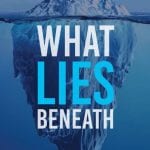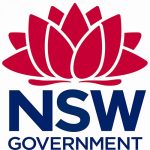Around The Web
Death by tailpipe emissions: What number is acceptable?
 There are many sections of industry and the public that can see the benefits of electric transportation; unfortunately we have a small group of politicians that believe otherwise.
There are many sections of industry and the public that can see the benefits of electric transportation; unfortunately we have a small group of politicians that believe otherwise.
The post Death by tailpipe emissions: What number is acceptable? appeared first on RenewEconomy.
Take unprecedented action or bear the consequences, says eminent scientist and advisor
 “Climate change is now reaching the end-game, where very soon humanity must choose between taking unprecedented action, or accepting that it has been left too late and bear the consequences.” Those are the challenging words from Prof. Hans Joachim Schellnhuber, for twenty years the head of the Potsdam Institute for Climate Impact Research, and a...
“Climate change is now reaching the end-game, where very soon humanity must choose between taking unprecedented action, or accepting that it has been left too late and bear the consequences.” Those are the challenging words from Prof. Hans Joachim Schellnhuber, for twenty years the head of the Potsdam Institute for Climate Impact Research, and a...
The post Take unprecedented action or bear the consequences, says eminent scientist and advisor appeared first on RenewEconomy.
“I am not afraid to say the c-word, coal, coal, coal”- Nationals deputy
 Nationals celebrate ditching of emissions targets from NEG and a push for new dispatchable generation: "Coal, coal, coal," says the deputy leader.
Nationals celebrate ditching of emissions targets from NEG and a push for new dispatchable generation: "Coal, coal, coal," says the deputy leader.
The post “I am not afraid to say the c-word, coal, coal, coal”- Nationals deputy appeared first on RenewEconomy.
Does more renewable energy mean higher prices?
 The cost to decarbonise the electricity system is lower than the cost of replacing the existing power system like for like. Think about it: that is a gift.
The cost to decarbonise the electricity system is lower than the cost of replacing the existing power system like for like. Think about it: that is a gift.
The post Does more renewable energy mean higher prices? appeared first on RenewEconomy.
Integration of energy and climate change policy critical for investment certainty
 Investors with more than $2 trillion in assets under management have expressed dismay at the sidelining of emissions reduction policy in Australia.
Investors with more than $2 trillion in assets under management have expressed dismay at the sidelining of emissions reduction policy in Australia.
The post Integration of energy and climate change policy critical for investment certainty appeared first on RenewEconomy.
Bills slashed with energy efficiency measures
 Power bills for thousands of families and businesses across NSW will fall thanks to $72 million in energy efficiency measures announced by Premier Gladys Berejiklian today.
Power bills for thousands of families and businesses across NSW will fall thanks to $72 million in energy efficiency measures announced by Premier Gladys Berejiklian today.
The post Bills slashed with energy efficiency measures appeared first on RenewEconomy.
Lombok earthquakes: different building designs could lessen future damage
Turnbull dumps emissions from NEG in final act of capitulation
 Turnbull effectively dumps emissions component from the proposed National Energy Guarantee, in what could be his final act of capitulation to the far right forces within the government parties.
Turnbull effectively dumps emissions component from the proposed National Energy Guarantee, in what could be his final act of capitulation to the far right forces within the government parties.
The post Turnbull dumps emissions from NEG in final act of capitulation appeared first on RenewEconomy.
Australia drops emissions target from National Energy Guarantee
First electric vehicle charging station for Ginninderry
 An ActewAGL electric vehicle charging station, the first to service West Belconnen and the first of several planned for the Ginninderry development, was launched today by Minister for Climate Change and Sustainability, Shane Rattenbury.
An ActewAGL electric vehicle charging station, the first to service West Belconnen and the first of several planned for the Ginninderry development, was launched today by Minister for Climate Change and Sustainability, Shane Rattenbury.
The post First electric vehicle charging station for Ginninderry appeared first on RenewEconomy.
A rare bird makes an appearance and vintage vans on display
Energy Insiders Podcast: Lily D’Ambrosio and the big solar deal
 Lily D’Ambrosio talks about the state’s big rooftop solar initiative; David Leitch accuses Rod Sims of stepping over the line; and why price caps could cause bills to rise.
Lily D’Ambrosio talks about the state’s big rooftop solar initiative; David Leitch accuses Rod Sims of stepping over the line; and why price caps could cause bills to rise.
The post Energy Insiders Podcast: Lily D’Ambrosio and the big solar deal appeared first on RenewEconomy.
Unlikely survival
The Australian mining threat to South Africa's Wild Coast – photo essay
Thom Pierce visited the people of Xolobeni to photograph them and the postcards he will post on their behalf to the Australian mining company putting at risk their way of life
Xolobeni is a cluster of rural communities on the eastern coast of South Africa. Tourists know beautiful and rugged area as the Wild Coast. The people of Xolobeni are mostly self-sufficient, living off the land and fishing in the sea, and often only travelling the two hours to the closest shops once a month to buy sugar, oil and other basic provisions.
Continue reading...Beards, prayers and steam rollers: Sunday's top images
Our picture editors choose the best photos from the past 24 hours
Continue reading...The poachers and the treasures of the deep: diving for abalone in South Africa
The seafood delicacy can sell for £420 a plate in China. As demand outstrips legal supply, divers from the poor suburbs of Cape Town are making up the shortfall
A muscular, bald man moved through the kelp, hunting forbidden shellfish. His scuba rig bubbled and hissed. He was nearly 100 metres from the seashore and 20 metres below the surface, which was grey and flat like a lake. The water was clear, giving far range of sight. Below him the seafloor spread out until it blurred into nothingness.
It was dangerous territory, but Shuhood (not his real name) accepted the risks. For more than a decade he’d been an abalone poacher, lifting a marine snail worth hundreds of pounds per kilo in Asia from reefs around South Africa. The first time he’d used scuba gear, without training, he’d almost drowned, held down by his weight belt and a mesh bag stuffed with abalone. Another day, his air hose broke underwater, and he blacked out as he swam up to the surface. One night the skipper of a boat he was working on ran him over while fleeing a police patrol vessel, and Shuhood was almost chopped by the propellers. Months later, a poacher was decapitated in a similar incident off Robben Island.
Continue reading...Plastic pollution: 'Stop flushing contact lenses down the loo'
How Guatemala is sliding into chaos in the fight for land and water
At 9am on 9 May, Luis Arturo Marroquín walked out of a shop in the main square of the small town of San Luis Jilotepéque in central Guatemala. Eyewitnesses say a black Toyota Hilux pick-up then drove up and, in full view of passersby, two men wearing hoods shot Marroquín repeatedly in the back.
The vehicle sped off but was identified and, within hours, police had stopped and reportedly questioned the men and found the weapons. But since then, no arrests have been made or charges levelled and the investigation has stalled.
Continue reading...Origin CEO backs push to cut short rooftop solar rebate
 Origin supports ACCC call to wind up the federal rooftop solar subsidy early, citing savings to consumers.
Origin supports ACCC call to wind up the federal rooftop solar subsidy early, citing savings to consumers.
The post Origin CEO backs push to cut short rooftop solar rebate appeared first on RenewEconomy.
Paul Nicklen: ‘If we lose the ice, we lose the entire ecosystem’
The photographer has been documenting life at the poles for years. He is determined to safeguard these fragile habitats
When he was four years old, Paul Nicklen’s family moved to Kimmirut on Baffin Island, northern Canada; a village so remote that supplies are delivered once a year, by boat. The Nicklens were one of only two non-Inuit families in the tiny community, and with no telephone, radio or TV, Paul’s childhood was spent on the ice, in the company of native fishermen and in awe of the visual majesty of the region. “I learned how to freeze,” he says. It is a skill that has helped him to become one of the world’s foremost photographers of polar wildlife.
“If you want to shoot the best photography of a particular ecosystem, you have to be comfortable wherever you are,” says Nicklen. “If that’s 150ft deep under the ice, you can’t be sitting there fighting for survival. You need to free up your mind.” Wearing a rebreather to avoid producing bubbles, he stays submerged for up to six hours, submitting himself to the same conditions inhabited by his favourite species. To Nicklen, the Arctic is not a forbidding, alien landscape, but a spiritual home: “I’m far more comfortable around bears than, say, on the streets of New York.”
Continue reading...


